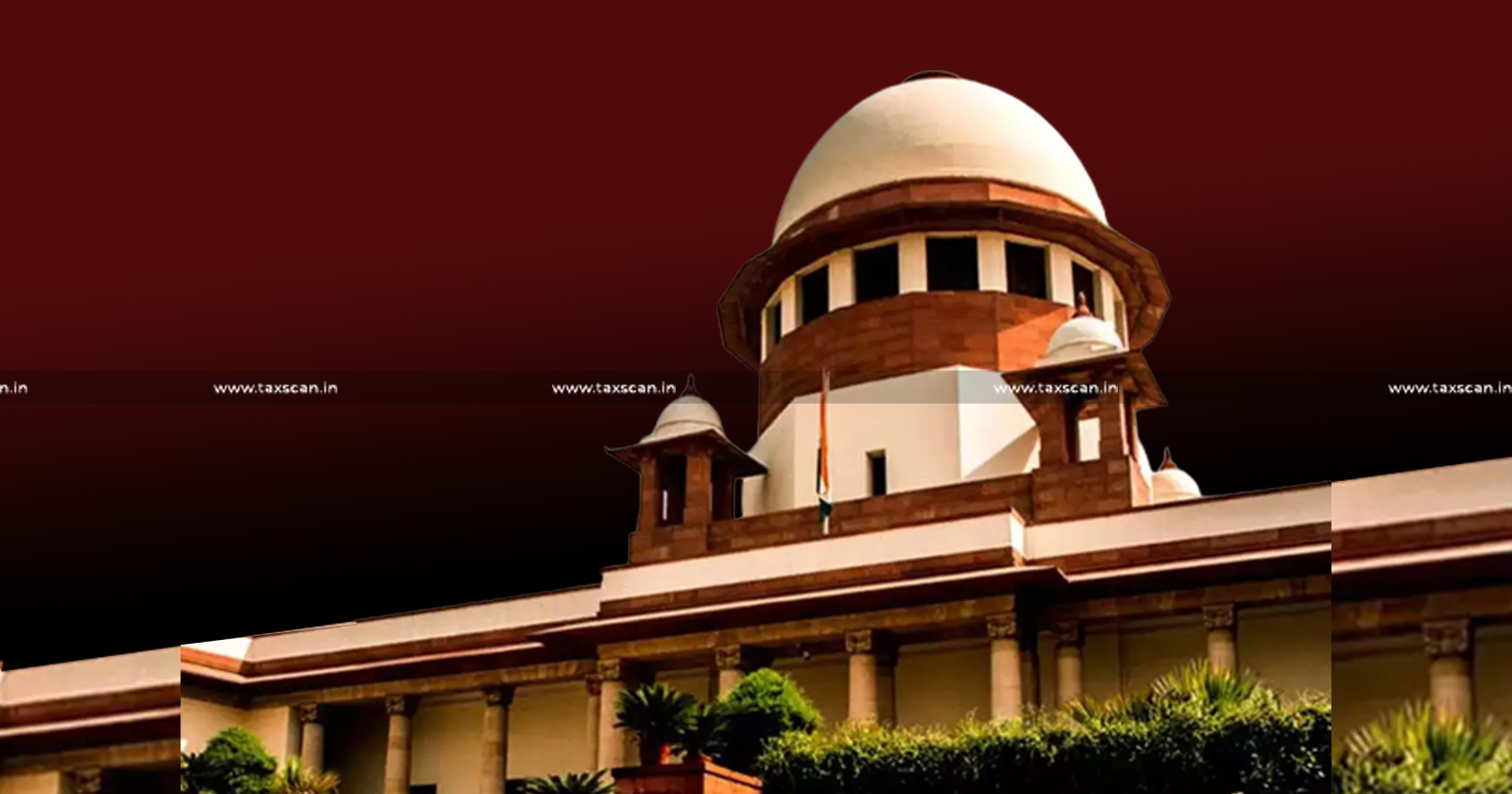NCLAT cannot Direct NCLT to Admit Petition u/7 of IBC without Evaluating Rival Contentions on Merits: SC [Read Order]
NCLAT cannot direct NCLT to Admit Petition u/7 of IBC without Evaluating Rival Contentions on Merits rules SC

NCLAT – NCLT – Supreme Court – Rival contentions – Petition under IBC – Merits evaluation – taxscan
NCLAT – NCLT – Supreme Court – Rival contentions – Petition under IBC – Merits evaluation – taxscan
In a recent decision the Supreme Court of India ruled that the National Company Law Appellate Tribunal (NCLAT) cannot direct the National Company Law Tribunal (NCLT) to admit petition under Section 7 of the Insolvency and Bankruptcy Code, 2016 (IBC) without evaluating the rival contentions on merits.
The appeal under Section 62 of the Insolvency and Bankruptcy Code 2016 arises from an order dated 6 December 2023 of the National Company Law Appellate Tribunal.
The application filed by the first respondent under Section 7 of IBC was dismissed by the National Company Law Tribunal on the ground that the debt was barred by limitation. However, while dismissing the petition on the ground of limitation, the NCLT also made the following observations on merits in its decision “The Bench has to take a call whether the debt is time-barred or not, in terms of provisions of the Limitation Act, 1963. The Bench before proceeding further would like to mention certain dates and events subsequent to the invocation of guarantee which will help in deciding the matter.”
The order of the NCLT was challenged in appeal by the respondents. The NCLAT, by its judgment, set aside the order of the NCLT and held that the finding that the debt was barred by limitation was “patently illegal”. However, while doing so, the NCLAT also observed that “there is no dispute raised regarding the liability of the Corporate Debtor towards the Financial Creditors and the guarantee by the Respondent”.
The NCLTdeclined to adjourn the proceedings on the ground of the pendency of the review petition and also recorded the request of the counsel for the appellant who sought time to file a further affidavit. No specific leave for filing an affidavit was granted by the NCLT. Aggrieved by the order of the NCLT the respondents filed an appeal before the NCLAT, which has been disposed of by the impugned order. The NCLAT has directed the NCLT to admit the application under Section 7. That is how the appeal arises before the Supreme Court.
A Three Judge Bench comprising Chief Justice Dr Dhananjaya Y Chandrachud, Justice J B Pardiwala and Justice Manoj Misra observed that “The order of the NCLAT, properly construed, dealt with the issue as to whether the debt was barred by limitation. A passing reference in the order of the NCLAT to whether the debt was in dispute must be read in the context of the nature of the appeal which arose from an order of the NCLT that the debt was barred by limitation. Hence, it would be inappropriate to read the order of the NCLAT as concluding the issue in regard to whether the application under Section 7 was or was not liable to be admitted. A stray observation in the order of the NCLAT cannot be regarded as a conclusive determination on merits.”
“We accordingly allow the appeal and set aside the impugned judgment and order of the NCLAT dated 6 December 2023. The application under Section 7 has already been restored to the file of the NCLT. The NCLT shall, after hearing the parties, determine as to whether the application under Section 7 is liable to be admitted. All the rights and contentions of the parties in that regard are kept open” the Bench noted.
To Read the full text of the Order CLICK HERE
Support our journalism by subscribing to Taxscanpremium. Follow us on Telegram for quick updates


